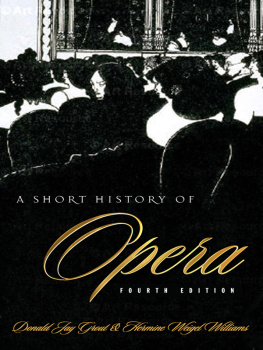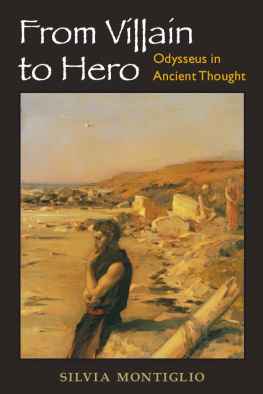No part of this publication may be reproduced, stored in a retrieval system, or transmitted in any form or by any means, electronic, mechanical, or otherwise, without the written permission of the publisher.
Dox, Donnalee.
p. cm.
Includes bibliographical references (p.) and index.
ISBN 0-472-11423-9 (cloth : alk. paper)
1.TheaterRomeHistoriography. 2.TheaterHistoryTo 500
Historiography. 3. TheaterHistoryMedieval, 5001500
Historiography. 4. TheaterReligious aspectsChristianity
History of doctrinesEarly church, ca. 30600. 5. Theater
Religious aspectsChristianityHistory of doctrinesMiddle Ages,
6001500. 6. Christian literature, EarlyLatin authorsHistory
and criticism. 7. Christian literature, Latin (Medieval and
modern)History and criticism. I. Title.
PA6074.D695 2004
792'0937'0902dc22 2004003468
Acknowledgments

I AM INDEBTED to numerous individuals and organizations. Stipendiary fellowships cosponsored by the Melbern G. Glasscock Center for Humanities Research and the Department of Performance Studies and Program in Religious Studies at Texas A&M University covered research expenses, which allowed for the timely completion of the manuscript. I thank Daniel Born-stein, Peter Lieuwen, and James Rosenheim for their support. Ideas and material that eventually became parts of chapters were accepted for publication as the larger project was taking shape. John Gronbeck-Tedesco (Journal of Dramatic Theory and Criticism), Blair Sullivan (Viator) and David Romn (Theatre Journal) saw early explorations of this material into print. Nils Holger Petersen of the Centre for the Study of the Cultural Heritage of Medieval Rituals at the University of Copenhagen sponsored my attendance at the Centres conference Genre and Ritual: Traditions and Their Modifications in 2002, which led to invaluable exchanges with several scholars. Mette Birkedal Bruun, Wim Verbaal, and Jeremy Llewellyn made connections between sources and writers I had overlooked. Their collegiality and scholarly generosity have been exceptional.
Several colleagues read and responded to parts of this manuscript in its formative months. I am deeply indebted to Pavel Blazek, then at Charles University, Prague, whose curiosity about the use of Bartholomew of Bruges in theater history set in motion the inquiry that became . Philipp Rosemanns enthusiastic response to my paper at the 2001 Texas Medieval Association meeting prompted me to continue working on Augustine. The interest of these collegial and rigorous scholars gave vitality to ideas that might otherwise have languished.
For their tireless attention to detail, Joy Richmond and Cathy Dineen deserve much credit for the initial preparation of the manuscript. Christina Francis and Neil Waldrop at the Arizona Center for Medieval and Renaissance Studies assisted in the final stages of its preparation, and I am grateful for their particular areas of expertise. Warren Smith at the University of New Mexico assisted directly with many of the Latin translations, though I take full responsibility for any errors in translation. My sincere gratitude goes to the anonymous readers for the University of Michigan Press. Their criticisms, suggestions, and queries strengthened the manuscript and saved me from many mistakes. From his immediate interest in this topic through the completion of the project, I could not have asked for a more thoughtful, careful, and efficient editor than Christopher Collins. Sarah Mann patiently answered my numerous questions, even when the answers should have been self-evident. Mary Hashman has my deep appreciation for her kindness and patience.
Two constants have sustained the construction of this book. Texas A&Ms Department of Performance Studies, under the leadership of Peter Lieuwen, and the collegial environment of the Melbern G. Glasscock Center for Humanities Research provided excellent circumstances in which to work. The last words of appreciationand they are woefully insufficientgo to Cary J. Nederman. The depth of Carys commitment to medieval scholarship and intellectual history gave this project a context and, above all, meaning. Day in and day out, Cary has been a source of clarity. For his tolerance for tedium and well-placed provocations, I am grateful beyond measure.
Abbreviations

AL: Laurentius Minio-Paluello, ed. Aristoteles Latina. Vol. 33. Brussels: Descle de Brouwer, 1968.
Baur: Ludwig Baur, ed. De divisione philosophiae, by Dominicus Gundisalvi. Beitrge zur Geschichte der Philosophie und Theologie des Mittelalters, vol. 4, nos. 23. Mnster: Aschendorffschen Buchhandlung, 1903.
CCCM: Corpus Christianorum Continuatio Medaevalis. Turnhout: Brepols, 1967.
CCSL: Corpus Christianorum Series Latina. Turnhout: Brepols, 1954.
Hanssens: Amalarii episcopie opera liturgica omnia. Edited by Johannes Michael Hanssens. 3 vols. Vatican City: Biblioteca Apostolica Vaticana, 1950.
Keats-Rohan: John of Salisbury. Ioannis Saresberiensis: Policraticus IIV. Edited by K. S. B. Keats-Rohan. Corpus Christianorum Continuatio Mediaevalis. vol. 118. Turnhout: Brepols, 1993.
Lutz: Remigius of Auxerre. Remigii autissiodorensis commentum in Martianum Capellam Libri I and II. 2 vols. Edited by Cora E. Lutz. Leiden: E. J. Brill, 196265.
Migne PL: Jacques-Paul Migne, ed. Patrologia Latina. 221 vols. Paris: Apud Garnier Fratres, 184464.
Sheridan: Alan of Lille. Anticlaudianus; or the Good and Perfect Man. Translated by James J. Sheridan. Toronto: Pontifical Institute of Mediaeval Studies, 1973.
Introduction

MUCH HAS BEEN DONE in the last two decades to assert the value of medieval theater, performance, performing bodies (living and dead), modes of representation, and texts independent of the consciously theatrical presentation of classical plays in the Renaissance.
The interest in popular, as opposed to literary, culture has drawn attention to a range of performative expressions that operated on the margins of or in resistance to the official written culture of European institutions, especially the church. New work on medieval performance has turned, for example, to spectacles of torture (Jody Enders, The Medieval Theater of Cruelty: Rhetoric, Memory, Violence) and the performative aspects of the human subject (Claire Sponsler,









 Printed on acid-free paper
Printed on acid-free paper